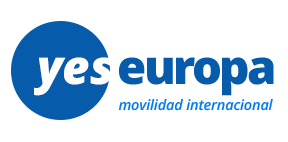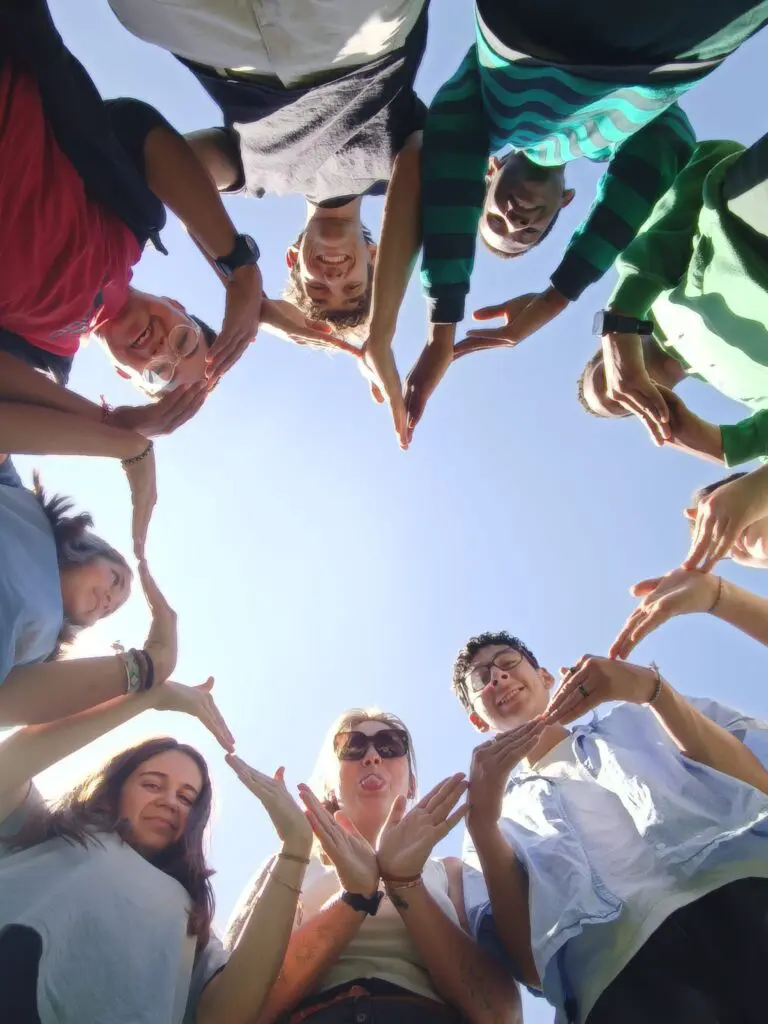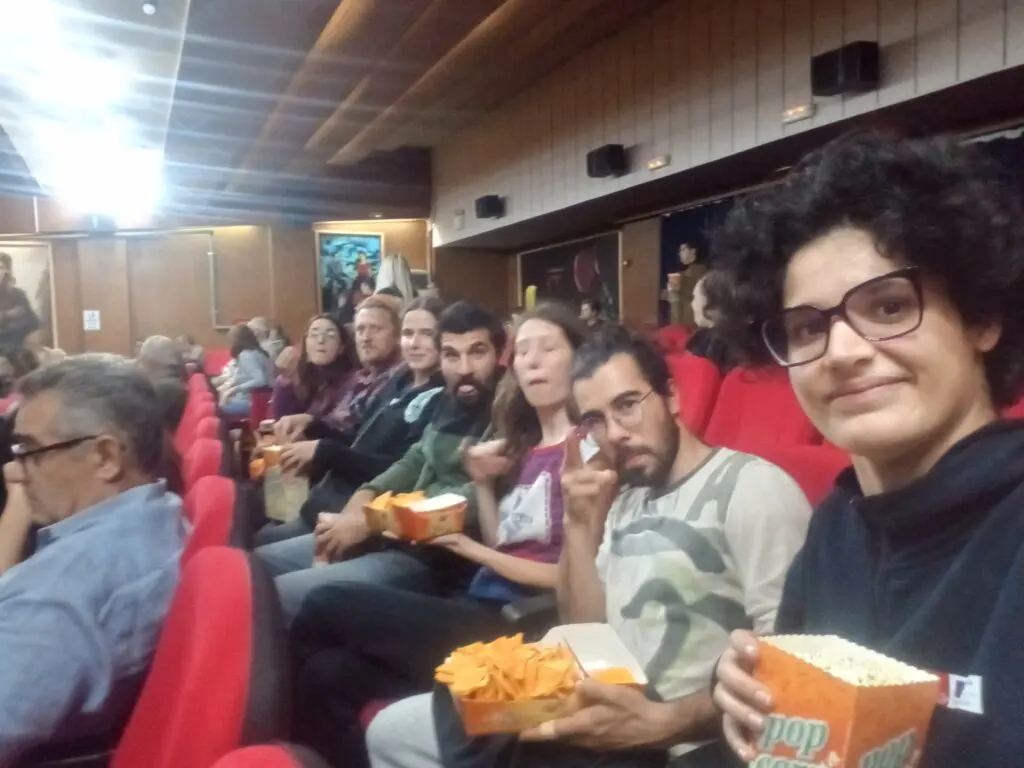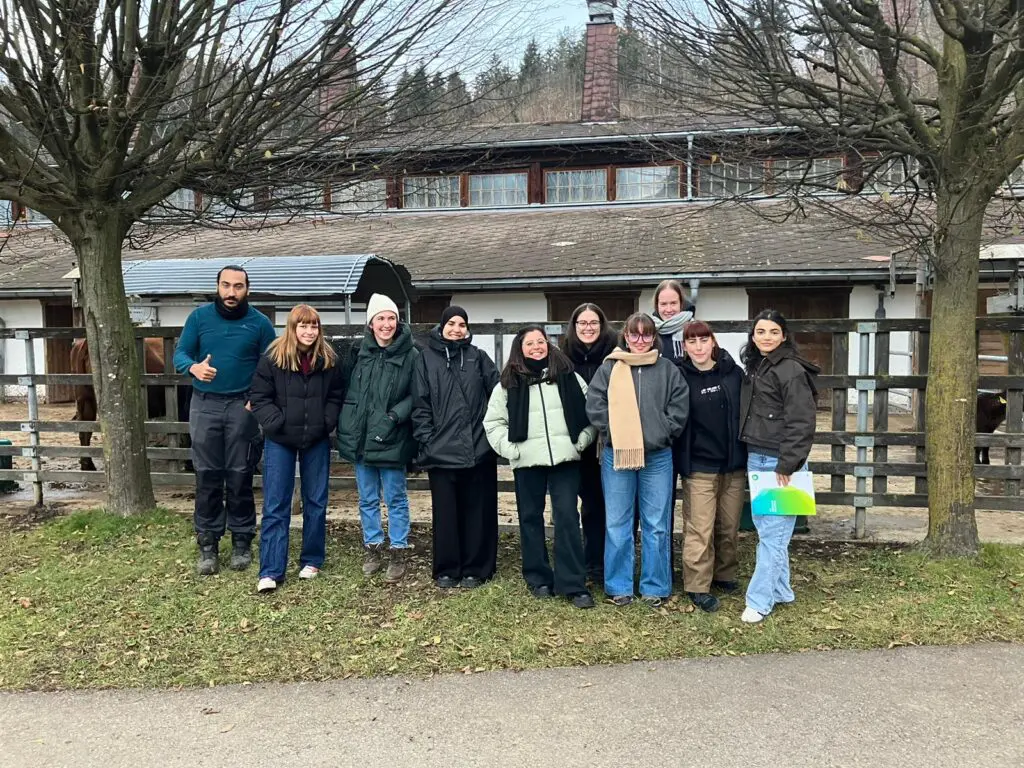Centre for asylum seekers Fedasil in Rixensart (Brabant Wallon)
Duration of the EVS: 12 months
Starting: September 1st, 2015
Description of organisation
Fedasil, the federal agency for the reception of asylum seekers, was created in May 2002. Fedasil is a public institution that guarantees support to asylum seekers in Belgium. It offers, together with its partners, hosting and support according to high quality standards. The Fedasil agency is involved in the process of conceiving, preparing and implementing hosting policies. The Agency coordinates as well programmes dedicated to voluntary return, to reception of unaccompanied minors and to integrating the centres into the local community.
Fedasil manages 20 federal centres all around Belgium.
The centre for asylum seekers of Rixensart is one of the Fedasil centres for asylum seekers. It is an open centre, which means asylum seekers are free to enter and leave as they wish. They usually stay at the centre during the time the ministry of Foreign Affairs inspects their files and papers. Most of the asylum seekers stay at the centre of Rixensart for a minimum of three to six months. In some cases they may stay for a couple of years.
to enter and leave as they wish. They usually stay at the centre during the time the ministry of Foreign Affairs inspects their files and papers. Most of the asylum seekers stay at the centre of Rixensart for a minimum of three to six months. In some cases they may stay for a couple of years.
The centre hosts families, isolated persons and unaccompanied minors. Some illegal residents are also hosted in the centre in order to get a social
in the centre in order to get a social support for their children. The centre counts 45 employees and about 25 local volunteers.
support for their children. The centre counts 45 employees and about 25 local volunteers.
Motivation and EVS experience
The centre has been hosting EVS volunteers for 13 years now. During this time span, we hosted 14 young people, whose service lasted 12 months for most of them. We have already hosted volunteers from many different countries (2 from Austria, 3 from Italy, 2 from France, 1 from Palestine, 2 from UK, 1 from Germany, 1 from Spain, 1 from Serbia, 1 from Czech Republic and 1 from Greece).
These projects allow our residents to establish a direct contact with volunteers by organising together leisure time activities. Volunteers have the opportunity to organise different kind of initiatives during their stay: up to now, these young people have proven to be open-minded, dynamic, full of energies, easy to deal with. And, which is most important, they are really concerned by the issue of refugees and they are willing to dedicate their time to the residents and to their projects.
with volunteers by organising together leisure time activities. Volunteers have the opportunity to organise different kind of initiatives during their stay: up to now, these young people have proven to be open-minded, dynamic, full of energies, easy to deal with. And, which is most important, they are really concerned by the issue of refugees and they are willing to dedicate their time to the residents and to their projects.
By hosting an EVS volunteer, we aim at extending the proposal of leisure activities for residents of the centre. We strongly encourage the volunteer to bring forward new ideas and initiatives. Besides, the volunteer is more than welcome to share with the residents his/her own culture. If we choose to host on long term, it is so to allow the volunteer to actually integrate the working team and to create a trust-based relationship with the residents. S/he will then have the opportunity to carry on projects on the long term and guarantee a certain regularity. The volunteer will have the opportunity to discover what the local community can offer as far as artistic, social and cultural activities by participating in the different events organised by our local partners. We will invite the young person to mainly work together with women and children, as it is them who most clearly demand for leisure time activities.
to mainly work together with women and children, as it is them who most clearly demand for leisure time activities.
This co-operation between the volunteer, the staff and the residents proves to be effective as it is based on mutual respect.
Project Environment
The reception centre of Rixensart is a live-in community situated in the region of Brabant Wallon, some 25 kilometres away from Brussels. Even though it is quite close to the capital, Rixensart is mainly a rural town. The centre, which used to be a children hospital, is 10 minutes away from the town station .
.
The centre mainly hosts families waiting for a regularisation of their staying. The centre can hosts up to 140 people. There are different kind of services which are offered to the residents, among which social support, medical service, reception, school support and leisure time activities . The centre hosts 20 unaccompanied minors as well, among which some pregnant girls or young single mums. In March 2008 a nursery, called “Kirikou”, was created, so to allow young mothers to go to school.
. The centre hosts 20 unaccompanied minors as well, among which some pregnant girls or young single mums. In March 2008 a nursery, called “Kirikou”, was created, so to allow young mothers to go to school.
The volunteer will be accommodated in an apartment in Brussels that s/he will share with other international volunteers. S/he may share his/her bedroom with another volunteer. S/he will receive a monthly allowance in order to buy food and also pocket money. S/he will have to possibility to get lunch at the centre.
in an apartment in Brussels that s/he will share with other international volunteers. S/he may share his/her bedroom with another volunteer. S/he will receive a monthly allowance in order to buy food and also pocket money. S/he will have to possibility to get lunch at the centre.
Proposed activities
The volunteer will integrate the service of leisure activities, whose aims are, on the on side, to support children and teenagers in their schooling and, on the other, to organise leisure time activities, mainly in the social and cultural field, for the residents. In this frame, the contribution of local volunteers is also important, as they provide a panel of workshops and trainings to the residents. Some activities in the neighbourhood are also carried out, whose aim is to raise awareness in the local community about asylum seekers.
Work with children : the volunteer will be asked to organise after school activities, which may take place both inside or outside the centre. For example, s/he could take the children to the swimming pool on Wednesday afternoon. The volunteer could also start some workshops according to his/her abilities and to the needs of residents. The centre offers different kind of facilities and equipment (sport room, musical instruments, do-it-yourself tools, snooker, etc). As an example, s/he could contribute to the DIY workshop which is run by other volunteers in the centre, s/he could accompany the children going out on visits organised by the staff or could help the children with their homework (being supported by a staff member or by another local volunteer).
As for the work with adults, and more specifically with the women, the volunteer will be asked to organise different kind of activities (from sports to social activities to cultural happenings) according to his/her interests and skills.
The volunteer will have to opportunity take part to the staff meetings as well as to the general meetings, who take place every first Monday of the month.
As for the volunteer’s timetable it is possible to point out already that the activities mainly take place starting at 11:00 in the morning as, before that, adults are mainly busy with community tasks and children are at school. The activities usually end at around 18:00. During school holidays, activities are organised both in the morning and in the afternoon. The work schedule may thus vary during the year. The volunteer may sometimes be asked to work on Saturday, but will then be guaranteed a day off as a compensation. The work schedule is determined on a monthly basis according the needs and duties of everybody, also considering the extra hours that were performed already.
Volunteer profiles and recruitment process
The description of the hosting project might be found on the EVS database and is accessible to anyone. As soon as we have a vacancy, this information is shared with European partners and to young people who showed some interest for the project. We ask to every applicant to send a CV, a motivation letter and to fill a questionnaire, which was created together by Fedasil and by Javva. The main aim of this tool is to verify what are the motivations of the young volunteer, as well as to understand his/her awareness of the policies concerning asylum seekers and his/her understanding of the main features of the hosting project.
The project welcomes all sorts of profiles. Everyone has its own qualities and ideas. It’s important however that the volunteer has at least a basic knowledge of French or English. Most of our residents are French or English speaking. If the volunteer is able to speak one of those two languages, he can communicate with the asylum seekers which makes an integration much more easy. Because the high number of other volunteers and staff members, it may not always be easy to fully feel at ease. That’s why a volunteer with a lot of autonomy and sense for initiative has more chances to feel at ease. Asylum seekers aren’t always too enthusiastic for the proposed activities. That’s why it’s important that the volunteer isn’t discouraged immediately when facing an obstacle. He/she should have some strength to keep going, some flexibility to adapt to the circumstances.
Number of volunteers hosted: 2
Risk prevention, protection and safety
A mentor will be identified among the staff: s/he will be charged of supporting the volunteer and help him/her in overcoming whatever difficulties s/he might encounter on his/her EVS project. Regular meetings will be organised between the mentor and the volunteer so to discuss sensitive issues and to evaluate the work. The mentor will be mostly available on the workplace but might also be reached by phone if needed. JAVVA will identify one person as well to be monitoring the project and the development of the volunteer.
The volunteer will be asked to follow the rules of conduct of the centre, who are aimed at both the staff and the residents. S/he will also be informed about fire prevention procedures.
We don’t foresee to host any under-age volunteer as this projects demands a certain maturity and emotional control.
Organisation topics
- Inclusion – equity
- Romas and/or other minorities
Deadline for applying: 10/03/2015
Selection process
For the selection of the volunteers we will need:
– Europass CV with picture (made in the last month)
– Motivational letter, writing that your sending organisation will be “Building Bridges”. We ask all candidates to send a specific letter of motivation – why they want to volunteer with us rather than just a general EVS one.
Remember to write in the motivation letter that your sending institution is “Asociación Building Bridges”.
All documents written in english you can send to: asociacionbb@gmail.com with subject “SVE, Fedasil in Rixensart”




Add a comment